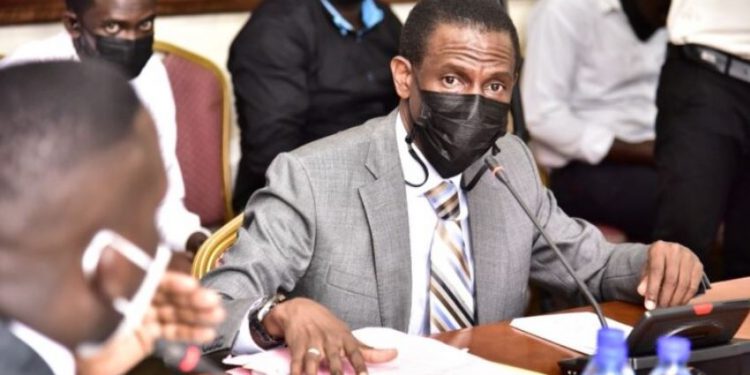Attorney General Kiryowa Kiwanuka has asked the High court to dismiss with costs, an application by two lawyers challenging the agreement the controversial coffee deal between the government of Uganda and Uganda Vinci Coffee Company Limited.
Henry Byansi and Micheal Aboneka petitioned the High court in April this year challenging the agreement signed by Ramathan Ggoobi, the secretary to the treasury on behalf of the government, and Enrica Pinetti, the board chairperson of Uganda Vinci Coffee Company Limited board on February 10, 2022, to process and export Uganda’s coffee on grounds that it is illegal and irrational.
The lawyers asked the High court to declare the actions of the minister of Finance and Economic Development to handpick Vinci to solely manage the coffee business, set coffee prices and related products in disregard of able Ugandan firms, is an infringement on the right to own property and open competition as well as economic rights of coffee farmers in the country.
The agreement grants Vinci exclusive rights to buy Uganda’s coffee before the government can look at other players. The agreement also exempts the company from import duty tax, stamp duty, value-added tax, National Social Security Fund, and pay as you earn for ten years. The company also reserves the right to determine the coffee prices in the country on top of enjoying electricity subsidies and other benefits.
Kiryowa intends to rely on evidence contained in an affidavit by the acting director of economic affairs in the ministry of Finance, Moses Kaggwa in his defense. In his affidavit, Kaggwa states that the agreement does not give Vinci any authority to manage production, export, and set prices of coffee beans and its related products.
He contends that all the required legal, administrative, and consultative processes were adhered to and the execution of the agreement by the government was informed by the overall government policy to invest in value addition and specifically agro-processing in line with the National Coffee Policy and National Coffee Act of 2021.
“…I have been informed by my lawyers in the attorney general’s chambers that legal due diligence was conducted prior to clearance of the deed and it was determined that the company was validly existing, incorporated under the laws of Uganda, had its returns up to date and the parties to the agreement were authorized and had the capacity to execute the agreement on behalf of the parties,” reads Kaggwa’s affidavit in part.
It adds that “…the ministry of Finance Planning and Economic Development carried out consultations with officials of Uganda Coffee Development Authority whose mandate is to promote good practices in all the value chains of the coffee industry.”
According to Kaggwa, Vinci obtained an investment license from the Uganda Investment Authority, and was granted a lease for land at plot 738 for 49 years to establish a coffee processing facility, adding that it qualifies to be given incentives by the government within the terms stipulated under the investment Code Act of 2019.
Kaggwa further adds that the government undertook to give priority supply of coffee to Vinci in order to ensure the sustainability of its operations, adding that there is no contractual or legal obligation for any coffee farmer to sell his or her coffee to Vinci company. The case is fixed for hearing on August 18, 2022, before civil division judge, Emmanuel Baguma.
Last month, the sectoral committee on trade, tourism, and industry in parliament unanimously called for the termination of the agreement on grounds that it contravened the constitution and other tax laws. Aboneka and Byansi have since submitted the decision of parliament to the court for review and quashing the coffee agreement.











